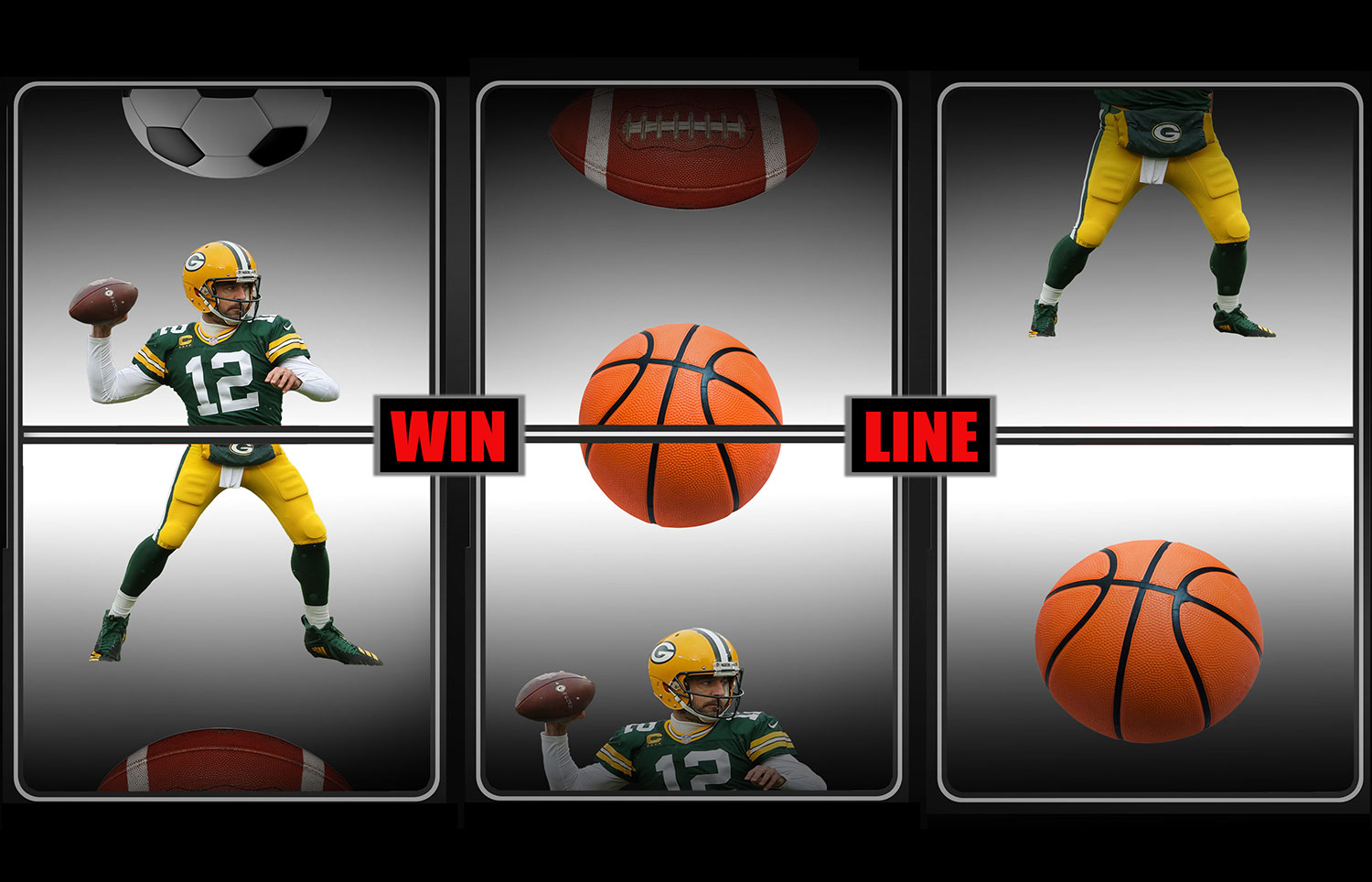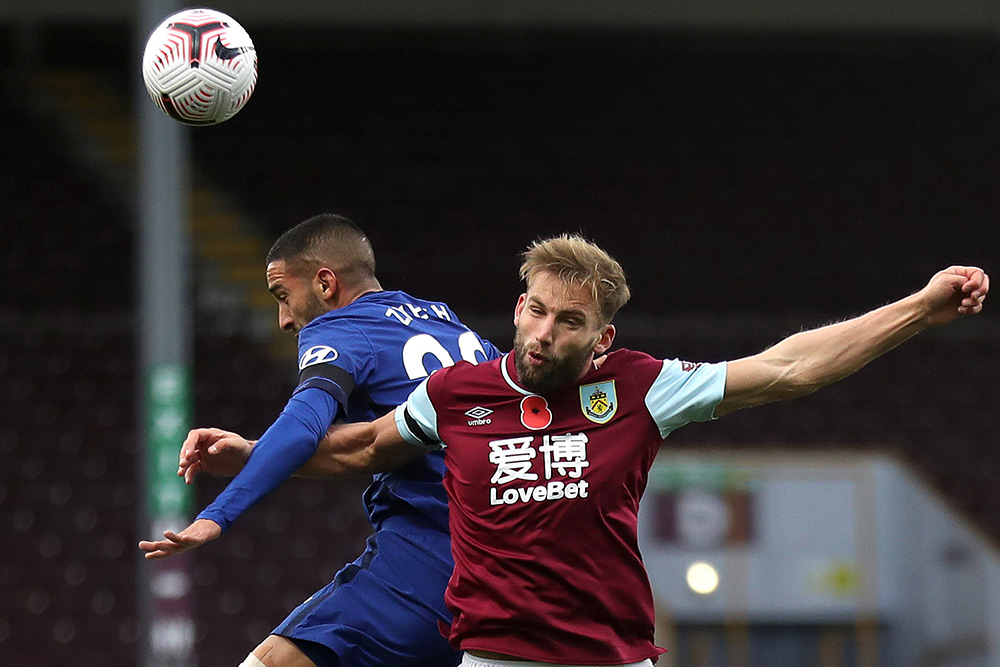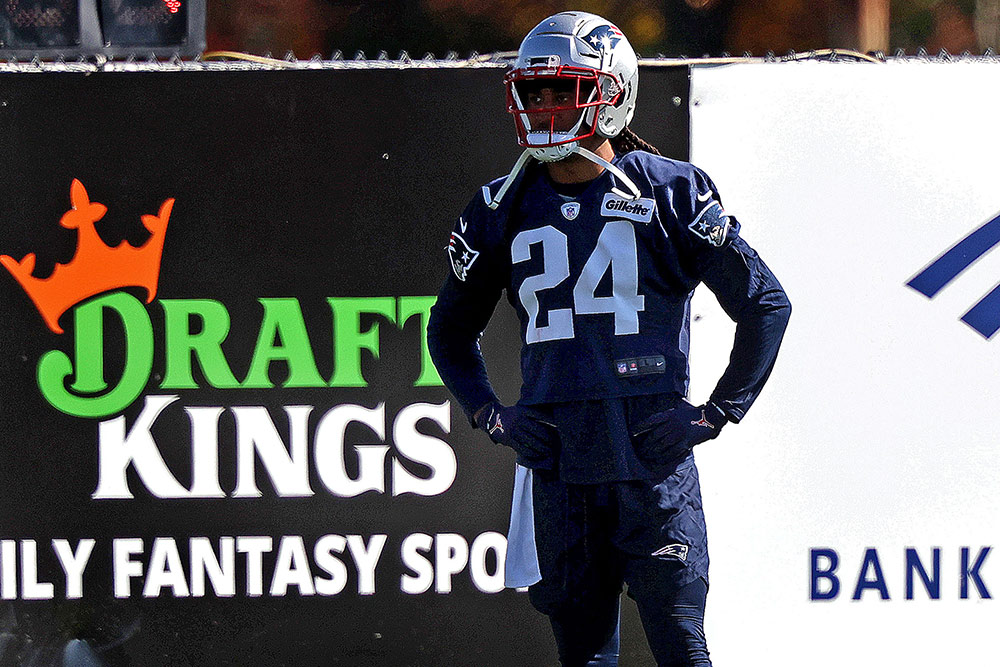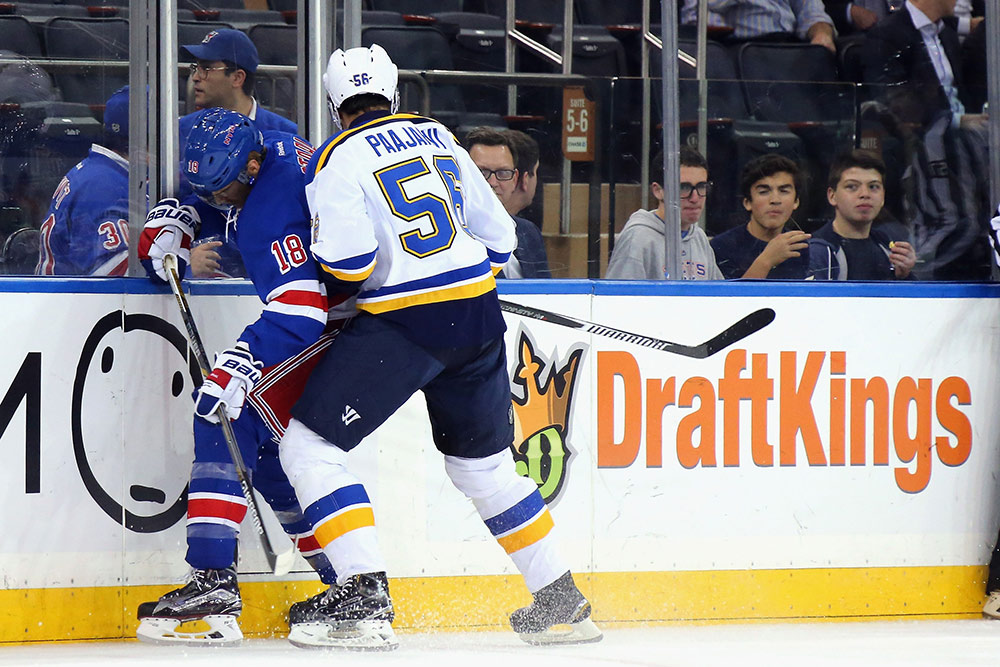
煩透了各類在線廣告?沒事,不僅在中國,這在美國也是很普遍的現象,尤其以在線體育博彩廣告為盛。在觀看橄欖球賽或瀏覽推特之前,美國的網民們不得不先應付撲面而來的在線體育博彩廣告。
諸如“下注20美元,就有機會在阿隆·羅杰斯傳球過碼線之后贏125美元”或“首次下注最高可享500美元風險免除”這類廣告可謂是如影隨形,而體育博彩公司則在繼續大肆宣傳看似天上掉餡餅的買賣,并希望借此攬獲那些能夠經常下注、從長遠來看多半會輸錢的客戶。
公眾對新冠疫情感到越來越厭煩,這便讓博彩初創企業獲得了理想的目標客戶群體。而且各州對博彩行業的監管有所放松,于是這類廣告呈現出了爆炸式增長。
專注于成癮治療的心理學家艾瑞克·菲爾茲說:“疫情期間,精神健康問題和成癮問題確實出現了激增。在這段時間,那些存在成癮問題或精神問題的人士最容易被攻破,而對于那些正常人士來說,他們如今也可能會出現上述問題。長時間待在家中只會讓人更傾向于尋找權宜之計,并形成及時行樂的心態。”
到2025年,美國合法體育博彩市場預計將帶來70億美元至80億美元的年收入,其2019年營收剛剛突破了9億美元大關,而且不到半數州已經實現了體育博彩的合法化。
研究公司Eilers & Krejcik Gaming的克里斯·格羅夫稱,體育博彩公司通常會花費數百美元的成本來招攬客戶,并寄希望于每位參與博彩的客戶在其一生當中可以為公司創造超過1000美元的收益。
美國博彩協會稱,當前,25個州和華盛頓特區已經通過了體育博彩合法化的法案。路易斯安那州、馬里蘭州和南達科他州將在本次選舉周期加入這一陣營,上述州已經通過了選民公投。
少數頂級參與者,例如DraftKings、FanDuel以及名氣更大的賭場博彩業運營商William Hill和BetMGM,在這一領域處于大幅領先地位,但這一現象并未妨礙其他參與者競相加入這一已然過于擁擠的行列——新澤西州當前有超過15家運營商角逐這一領域。

博彩行業情報公司Vixio GamblingCompliance的數據負責人丹尼爾·斯通說:“就免費押注和促銷頻率而言,大家幾乎都亮出了底牌。即便DraftKings希望減小推廣力度并略微向保守策略轉變,但在對手面前它們依然是身不由己。如果Barstook來到了賓夕法尼亞州,火力全開,大搞免費押注,瘋狂撒錢,有鑒于已經在近期拉開帷幕的美國職業橄欖球賽季,FanDuel和DraftKings開源節流、小心謹慎的想法難以實現。”
斯通尤其提到了DraftKings和FanDuel,因為這兩家公司很長時間以來一直穩坐行業的頭兩把交椅。遠在美國最高法院于2018年5月否決體育博彩的聯邦禁令之前,DraftKings和FanDuel便因為其Daily Fantasy Sports產品而成為了行業的領軍者。就在各州的移動體育博彩合法化之后,DraftKings和FanDuel已經接觸到了其他競爭對手不曾接觸的用戶群。

斯通說:“DraftKings與FanDuel完全是依靠這一現成的海量DFS用戶群體才樹立了在行業中的領導地位,這些成天坐著的用戶是交叉銷售的理想對象。這兩家公司一直在通過這些用戶賺錢,并以遠低于美高梅(MGM)或凱撒(Caesars)的客戶獲取率,打造了一個龐大的體育博彩業務,而美高梅和凱撒則是從零開始,嘗試在印第安納州或伊利諾伊州向其數據庫中歲數較大的老虎機玩家進行交叉兜售,但此舉可能并不完全適用于體育博彩。”
然而,在一開始就坐擁龐大的活躍用戶群并不一定就意味著DraftKings或FanDuel能夠從中盈利。
DraftKings在2018年和2019年均出現了虧損,而疫情對體育賽季的干擾更是雪上加霜,公司在2020年前6個月未能再次實現盈利。盡管FanDuel在2019年斬獲了45%的同比營收增長,但在上個財年亦出現了虧損。隨著更多的州不斷宣布體育博彩的合法化,營收將繼續保持增長,但博彩運營商依然得耗費財力,在這個利潤已然微薄的行業,通過大量的營銷和推廣活動,以及投資產品改善和雇員增長,來抵御新競爭對手。
FanDuel的首席營銷官邁克·拉芬斯伯格說:“如今,我們基本上進入了增長模式。我們正投資在新州開展業務,其目的是獲取大量的客戶,并讓他們嘗試我們的產品。因此,最終這意味著在這些早期階段,從營收角度來看,我們處于入不敷出的狀態。”
在FanDuel、 DraftKings、 BetMGM、 William Hill以及BetRivers這樣的老牌公司忙著爭搶市場份額時,新加入的企業讓競爭進一步白熱化。
Penn National Gaming旗下的PointsBet和Barstool Sports恰好便是近期眾多打算進軍這一領域的兩位新手,這兩家企業在進軍其他州時也帶來了其一系列促銷活動。
斯通對Barstool尤為關注。他說:“其觀眾是體育博彩交叉銷售的完美對象。我知道其中有的觀眾不到21歲,但這些都是癡迷于體育的年輕人士,而且他們都已經參與過體育博彩。他們之所以投資Barstool品牌,是因為看到了該品牌在其他領域獲得的成功。他們認為自己擁有一大批現成的觀眾群,而且可以高效地讓其參與體育博彩。”

移動博彩業經濟學
美國博彩協會與斯通均表示,除了通過合法博彩公司擔保的所有資金,運營商僅能拿到其中的5%至7%作為營收,這還沒有計算支付的監管費用和稅費,后者在某些州可能高達營收的50%。如果再加上雇員薪資、運營費用和營銷費用——Vixio公司稱,僅這些費用就可能會占到總營收的50%以上,所以在線體育博彩業在當前來看并不是一個賺錢的行業。
事實上,DraftKings最近稱公司第三季度營收達到了1.33億美元,這是非常好的成績,較去年同期增長了98%。然而,公司在芝加哥小熊隊(Chicago Cubs)、美國職業棒球大聯盟(MLB)、ESPN、紐約巨人隊(New York Giants)和邁克爾·喬丹上的花費也讓其該季度的銷售和營銷費用增至2.03億美元。雖然這類開支讓DraftKings的用戶群(按照月度獨立付款人計算)在第三季度增長了64%,但這也意味著公司的盈利可能依然遙遙無期。
斯通說:“現在,感覺就像公司在不計成本地擴張,不計成本地搶奪市場份額。人們并不在意輸錢,DraftKings只不過是在丟失了財富之后才獲得令人感動的估值,它看似并非取決于理性的成本控制,這些企業希望在四至五年內躋身贏家之列。可能到那個時候,這些公司的專注點就會轉移至成本控制和盈利。”
如今,人們的關注重點依然在于成為其中的“贏家”之一。如果斯通是對的,而且美國體育博彩市場發展成了英國這個老牌博彩國家的樣子,那么最后市場中可能僅有5到6家博彩運營商,如果是這樣的話,它們將占到10%的市場份額。由于目前市場上的運營商數量遠超6家,這意味著海量的運營商都將出局。

因此,競爭迫使各大公司推出了一些頗有創造力的營銷手段。
例如,FanDuel推出了一些此前從未聽說過的概念。例如可以退款的“同種游戲連贏”(Same Game Parlays)以及眾籌體育博彩。可能你對這兩種方案并不是很熟悉,但它們都能夠幾乎完全規避風險,并保持同樣的回報率(或贏率)。
拉芬斯伯格說:“我們將投資在其他州開展業務,以便讓更多的客戶嘗試我們的產品。最終,我們將慷慨地對待我們的客戶,并讓體育博彩充滿樂趣。我們認為從長遠來看,而且從迄今為止的業績以及市場份額報告中看到,這種慷慨可以換來客戶的留存和忠誠度。”
充滿危險的未來?
這么做當然能夠帶來回報,斯通稱在某些情況下客戶一生平均可以帶來高達2000美元的價值。盡管豐厚的回報對博彩運營商來說有著顯著的吸引力(亦是當前促銷氛圍的主要推手),但也有可能為行業及其客戶帶來麻煩。
博彩問題國家會議(National Conference on Problem Gambling)的執行總監凱斯·懷特稱,只要看看歐洲的情況就夠了。
遠在美國之前,在線體育博彩便已經在大多數歐洲國家合法化,并于數年前在英國、西班牙、法國等國家呈現出井噴趨勢。在看到了數百億美元的市場規模之后,體育博彩運營商掀起了激烈的市場份額爭奪戰。
很快,這類廣告鋪天蓋地而來,包括足球俱樂部的運動衫、時常貫穿整個電視的直播、體育館、流媒體平臺、橫跨社交媒體等等。從長遠來看,那些愿意花費數億美元來招攬更多賭民的體育博彩運營商,最終將成為輸家。
直接支付營銷費用,贏取市場份額,然后收獲回報。就這么簡單,不是嗎?
其實并不是這樣。博彩行業的興起很快受到了公眾、媒體以及政府的抨擊,因為難處理的賭博習慣變得越來越常見。Fields稱,正是這些廣告的連番轟炸導致了人們的沖動行為。
菲爾茲說:“第一次下注時,這些公司都會讓你贏,因為這會讓你感到自己很在行,然后這種間歇性的強化模式便開始介入,這便是最強有力的行為強化。如果只輸不贏的話,人們很容易放棄。如果一直贏,然后突然開始一直輸,人們也很容易放棄。然而研究表明,如果偶爾贏一次,那么打破行為模式的難度無疑是最大的。”
在歐洲,政府的確很快出臺了政策,限制博彩公司投放廣告的時間和地點,同時要求運營商投資發布預防賭博致癮的信息。
懷特警告說,數年后美國也可能會發生一模一樣的情況。
他認為州政府和運營商應該著眼長遠,培養客戶的可持續性。換句話說,他們應該減少廣告的頻率和密度,將更多的錢投入成癮預防舉措(像對待酗酒那樣對待賭博),限制賭博金額以及交易次數,并借此確保客戶不會因此而傾家蕩產。然而,運營商是否會采納這條建議或謹慎前行,卻依然是個未知數。
懷特說:“很明顯,一些短視的運營商可能會對此置之不理,但一些著眼于長遠的運營商深知,能夠留住客戶才是最好的,因為這樣才可以擁有更好的生命周期價值,而且攬客的成本真的很高。因此很明顯,花一點時間提升這些客戶的可持續性不僅僅完全符合其道德利益,也是最有利于其經濟利益的做法。”(財富中文網)
譯者:馮豐
審校:夏林
煩透了各類在線廣告?沒事,不僅在中國,這在美國也是很普遍的現象,尤其以在線體育博彩廣告為盛。在觀看橄欖球賽或瀏覽推特之前,美國的網民們不得不先應付撲面而來的在線體育博彩廣告。
諸如“下注20美元,就有機會在阿隆·羅杰斯傳球過碼線之后贏125美元”或“首次下注最高可享500美元風險免除”這類廣告可謂是如影隨形,而體育博彩公司則在繼續大肆宣傳看似天上掉餡餅的買賣,并希望借此攬獲那些能夠經常下注、從長遠來看多半會輸錢的客戶。
公眾對新冠疫情感到越來越厭煩,這便讓博彩初創企業獲得了理想的目標客戶群體。而且各州對博彩行業的監管有所放松,于是這類廣告呈現出了爆炸式增長。
專注于成癮治療的心理學家艾瑞克·菲爾茲說:“疫情期間,精神健康問題和成癮問題確實出現了激增。在這段時間,那些存在成癮問題或精神問題的人士最容易被攻破,而對于那些正常人士來說,他們如今也可能會出現上述問題。長時間待在家中只會讓人更傾向于尋找權宜之計,并形成及時行樂的心態。”
到2025年,美國合法體育博彩市場預計將帶來70億美元至80億美元的年收入,其2019年營收剛剛突破了9億美元大關,而且不到半數州已經實現了體育博彩的合法化。
研究公司Eilers & Krejcik Gaming的克里斯·格羅夫稱,體育博彩公司通常會花費數百美元的成本來招攬客戶,并寄希望于每位參與博彩的客戶在其一生當中可以為公司創造超過1000美元的收益。
美國博彩協會稱,當前,25個州和華盛頓特區已經通過了體育博彩合法化的法案。路易斯安那州、馬里蘭州和南達科他州將在本次選舉周期加入這一陣營,上述州已經通過了選民公投。
少數頂級參與者,例如DraftKings、FanDuel以及名氣更大的賭場博彩業運營商William Hill和BetMGM,在這一領域處于大幅領先地位,但這一現象并未妨礙其他參與者競相加入這一已然過于擁擠的行列——新澤西州當前有超過15家運營商角逐這一領域。
博彩行業情報公司Vixio GamblingCompliance的數據負責人丹尼爾·斯通說:“就免費押注和促銷頻率而言,大家幾乎都亮出了底牌。即便DraftKings希望減小推廣力度并略微向保守策略轉變,但在對手面前它們依然是身不由己。如果Barstook來到了賓夕法尼亞州,火力全開,大搞免費押注,瘋狂撒錢,有鑒于已經在近期拉開帷幕的美國職業橄欖球賽季,FanDuel和DraftKings開源節流、小心謹慎的想法難以實現。”
斯通尤其提到了DraftKings和FanDuel,因為這兩家公司很長時間以來一直穩坐行業的頭兩把交椅。遠在美國最高法院于2018年5月否決體育博彩的聯邦禁令之前,DraftKings和FanDuel便因為其Daily Fantasy Sports產品而成為了行業的領軍者。就在各州的移動體育博彩合法化之后,DraftKings和FanDuel已經接觸到了其他競爭對手不曾接觸的用戶群。
斯通說:“DraftKings與FanDuel完全是依靠這一現成的海量DFS用戶群體才樹立了在行業中的領導地位,這些成天坐著的用戶是交叉銷售的理想對象。這兩家公司一直在通過這些用戶賺錢,并以遠低于美高梅(MGM)或凱撒(Caesars)的客戶獲取率,打造了一個龐大的體育博彩業務,而美高梅和凱撒則是從零開始,嘗試在印第安納州或伊利諾伊州向其數據庫中歲數較大的老虎機玩家進行交叉兜售,但此舉可能并不完全適用于體育博彩。”
然而,在一開始就坐擁龐大的活躍用戶群并不一定就意味著DraftKings或FanDuel能夠從中盈利。
DraftKings在2018年和2019年均出現了虧損,而疫情對體育賽季的干擾更是雪上加霜,公司在2020年前6個月未能再次實現盈利。盡管FanDuel在2019年斬獲了45%的同比營收增長,但在上個財年亦出現了虧損。隨著更多的州不斷宣布體育博彩的合法化,營收將繼續保持增長,但博彩運營商依然得耗費財力,在這個利潤已然微薄的行業,通過大量的營銷和推廣活動,以及投資產品改善和雇員增長,來抵御新競爭對手。
FanDuel的首席營銷官邁克·拉芬斯伯格說:“如今,我們基本上進入了增長模式。我們正投資在新州開展業務,其目的是獲取大量的客戶,并讓他們嘗試我們的產品。因此,最終這意味著在這些早期階段,從營收角度來看,我們處于入不敷出的狀態。”
在FanDuel、 DraftKings、 BetMGM、 William Hill以及BetRivers這樣的老牌公司忙著爭搶市場份額時,新加入的企業讓競爭進一步白熱化。
Penn National Gaming旗下的PointsBet和Barstool Sports恰好便是近期眾多打算進軍這一領域的兩位新手,這兩家企業在進軍其他州時也帶來了其一系列促銷活動。
斯通對Barstool尤為關注。他說:“其觀眾是體育博彩交叉銷售的完美對象。我知道其中有的觀眾不到21歲,但這些都是癡迷于體育的年輕人士,而且他們都已經參與過體育博彩。他們之所以投資Barstool品牌,是因為看到了該品牌在其他領域獲得的成功。他們認為自己擁有一大批現成的觀眾群,而且可以高效地讓其參與體育博彩。”
移動博彩業經濟學
美國博彩協會與斯通均表示,除了通過合法博彩公司擔保的所有資金,運營商僅能拿到其中的5%至7%作為營收,這還沒有計算支付的監管費用和稅費,后者在某些州可能高達營收的50%。如果再加上雇員薪資、運營費用和營銷費用——Vixio稱,僅這些費用就可能會占到總營收的50%以上,所以在線體育博彩業在當前來看并不是一個賺錢的行業。
事實上,DraftKings最近稱公司第三季度營收達到了1.33億美元,這是非常好的成績,較去年同期增長了98%。然而,公司在芝加哥小熊隊(Chicago Cubs)、美國職業棒球大聯盟(MLB)、ESPN、紐約巨人隊(New York Giants)和邁克爾·喬丹上的花費也讓其該季度的銷售和營銷費用增至2.03億美元。雖然這類開支讓DraftKings的用戶群(按照月度獨立付款人計算)在第三季度增長了64%,但這也意味著公司的盈利可能依然遙遙無期。
斯通說:“現在,感覺就像公司在不計成本地擴張,不計成本地搶奪市場份額。人們并不在意輸錢,DraftKings只不過是在丟失了財富之后才獲得令人感動的估值,它看似并非取決于理性的成本控制,這些企業希望在四至五年內躋身贏家之列。可能到那個時候,這些公司的專注點就會轉移至成本控制和盈利。”
如今,人們的關注重點依然在于成為其中的“贏家”之一。如果斯通是對的,而且美國體育博彩市場發展成了英國這個老牌博彩國家的樣子,那么最后市場中可能僅有5到6家博彩運營商,如果是這樣的話,它們將占到10%的市場份額。由于目前市場上的運營商數量遠超6家,這意味著海量的運營商都將出局。
因此,競爭迫使各大公司推出了一些頗有創造力的營銷手段。
例如,FanDuel推出了一些此前從未聽說過的概念。例如可以退款的“同種游戲連贏”(Same Game Parlays)以及眾籌體育博彩。可能你對這兩種方案并不是很熟悉,但它們都能夠幾乎完全規避風險,并保持同樣的回報率(或贏率)。
拉芬斯伯格說:“我們將投資在其他州開展業務,以便讓更多的客戶嘗試我們的產品。最終,我們將慷慨地對待我們的客戶,并讓體育博彩充滿樂趣。我們認為從長遠來看,而且從迄今為止的業績以及市場份額報告中看到,這種慷慨可以換來客戶的留存和忠誠度。”
充滿危險的未來?
這么做當然能夠帶來回報,斯通稱在某些情況下客戶一生平均可以帶來高達2000美元的價值。盡管豐厚的回報對博彩運營商來說有著顯著的吸引力(亦是當前促銷氛圍的主要推手),但也有可能為行業及其客戶帶來麻煩。
博彩問題國家會議(National Conference on Problem Gambling)的執行總監凱斯·懷特稱,只要看看歐洲的情況就夠了。
遠在美國之前,在線體育博彩便已經在大多數歐洲國家合法化,并于數年前在英國、西班牙、法國等國家呈現出井噴趨勢。在看到了數百億美元的市場規模之后,體育博彩運營商掀起了激烈的市場份額爭奪戰。
很快,這類廣告鋪天蓋地而來,包括足球俱樂部的運動衫、時常貫穿整個電視的直播、體育館、流媒體平臺、橫跨社交媒體等等。從長遠來看,那些愿意花費數億美元來招攬更多賭民的體育博彩運營商,最終將成為輸家。
直接支付營銷費用,贏取市場份額,然后收獲回報。就這么簡單,不是嗎?
其實并不是這樣。博彩行業的興起很快受到了公眾、媒體以及政府的抨擊,因為難處理的賭博習慣變得越來越常見。菲爾茲稱,正是這些廣告的連番轟炸導致了人們的沖動行為。
菲爾茲說:“第一次下注時,這些公司都會讓你贏,因為這會讓你感到自己很在行,然后這種間歇性的強化模式便開始介入,這便是最強有力的行為強化。如果只輸不贏的話,人們很容易放棄。如果一直贏,然后突然開始一直輸,人們也很容易放棄。然而研究表明,如果偶爾贏一次,那么打破行為模式的難度無疑是最大的。”
在歐洲,政府的確很快出臺了政策,限制博彩公司投放廣告的時間和地點,同時要求運營商投資發布預防賭博致癮的信息。
懷特警告說,數年后美國也可能會發生一模一樣的情況。
他認為州政府和運營商應該著眼長遠,培養客戶的可持續性。換句話說,他們應該減少廣告的頻率和密度,將更多的錢投入成癮預防舉措(像對待酗酒那樣對待賭博),限制賭博金額以及交易次數,并借此確保客戶不會因此而傾家蕩產。然而,運營商是否會采納這條建議或謹慎前行,卻依然是個未知數。
懷特說:“很明顯,一些短視的運營商可能會對此置之不理,但一些著眼于長遠的運營商深知,能夠留住客戶才是最好的,因為這樣才可以擁有更好的生命周期價值,而且攬客的成本真的很高。因此很明顯,花一點時間提升這些客戶的可持續性不僅僅完全符合其道德利益,也是最有利于其經濟利益的做法。”(財富中文網)
譯者:馮豐
審校:夏林
If you can't get through a football game or Twitter scroll without seeing an in-your-face promo for online sports betting lately, well, you're not alone.
Offers such as “Bet $20, win $125 if Aaron Rodgers throws for one passing yard” or “Place your first bet up to $500 risk free” have become ubiquitous, as sportsbooks continue to dangle the prospect of essentially free money in hopes of acquiring a customer base that will bet and—more often than not—lose money over the long haul.
These offers have exploded as a pandemic-weary public has proved the perfect target for betting startups, many of which are rushing to exploit ever-loosening state rules on betting. "Throughout the pandemic, there's definitely been a sharp increase in mental-health issues and addiction," says Eric Fields, a psychologist who specializes in addiction therapy. "This time has been extremely vulnerable for people who've already had an addiction or mental health issue, and for people that haven't had one, they now may be at risk for developing one. Being home all that time just leads people to have this kind of susceptibility to do short-term fixes, to get some kind of instant gratification."
Estimated to generate between $7 billion and $8 billion in annual revenue by 2025, the U.S. legal sports betting market as a whole already pulled in just over $900 million in revenue in 2019, and that's with less than half of states having legalized the practice. Chris Grove of the research firm Eilers & Krejcik Gaming said that sportsbooks are generally paying several hundreds of dollars in customer acquisition costs in hopes of acquiring lifetime values in excess of a thousand dollars per paying customer.
Currently, 25 states and Washington, D.C., have passed bills that legalize sports betting to date, with Louisiana, Maryland, and South Dakota joining the club this election cycle after ballot initiatives passed, according to the American Gaming Association. A few top players, such as DraftKings, FanDuel, and more established casino gambling operators William Hill and BetMGM, hold a significant lead, but that hasn’t stopped others—New Jersey currently has upwards of 15 operators duking it out—from further clogging the already overcrowded sector. Thus, operators are turning a blind eye to profit margins, sponsoring these free-bet and odds-boosting campaigns in what could be an ultimately futile effort to grab a portion of the multibillion-dollar mobile gambling market.
“With regards to the free bets and promotional intensity, it’s almost a race to the bottom,” said Daniel Stone, head of data at Vixio GamblingCompliance, a gambling industry intelligence firm. “Even if DraftKings wanted to pare back and become a bit more conservative, they are kind of led by what their competitors are doing. If Barstool comes in in Pennsylvania and goes all guns blazing, throwing free bets and being hugely generous, with the NFL season having recently kicked off, it’s hard for FanDuel and DraftKings to turn off the taps and become more cautious.”
Stone mentions DraftKings and FanDuel specifically because they’re the two biggest players in the market and have been for some time. Well before the U.S. Supreme Court overturned a federal law banning sports betting in May 2018, DraftKings and FanDuel rose to prominence as a result of their Daily Fantasy Sports offerings. Once states began to legalize mobile sports betting, DraftKings and FanDuel already had access to a user base that other competitors didn’t.
“DraftKings and FanDuel have established this lead really on the basis of this huge, ready-made DFS user base just sitting there ready to be cross-sold,” Stone said. “They’ve been able to monetize those people and build huge sports betting businesses at a far lower customer acquisition than an MGM or a Caesars that is starting from more of a standing start, trying to cross-sell older slot players in their databases in Indiana or Illinois which might not be such a perfect fit for sports betting.”
Starting with a large active user-base hasn’t necessarily meant that either DraftKings or FanDuel are profitable, though. DraftKings reported operational losses in both 2018 and 2019, and while the pandemic's interruption of the sports season certainly didn't help matters, the company failed to turn a profit again throughout the first six months of 2020. FanDuel, despite 45% year-over-year revenue growth in 2019, also turned a loss last fiscal year. Revenue will keep on growing as more states continue to legalize the practice, but betting operators still must spend to both fend off new competitors with huge marketing and promotional campaigns and invest in product improvements and employee growth in an industry that already runs on tight margins.
"Now, we're hugely in growth mode," Mike Raffensperger, CMO of FanDuel, said. "We are investing to launch in new states, and that is a function of getting a lot of customers and having them try our products. And so, ultimately, that means in these early stages, we're investing more than we're making at a revenue standpoint."
While the established players like FanDuel, DraftKings, BetMGM, William Hill, and BetRivers vie for market share, there is a flood of competition from newer entrants. PointsBet and Barstool Sports, owned by Penn National Gaming, are just two of the latest companies to try to get in on the action, and they’ve brought with them their own flurry of promos as they enter new states. Barstool in particular has caught Stone's eye. “Their audience is kind of perfect to cross-sell to sports betting,” Stone said. “I know there will be people under 21 among those, but these are young, sports-obsessed guys who are already sports bettors. They’re invested in the Barstool brand as evidenced by their success in other areas. They think they have this captive, ready audience to parlay into sports betting quite effectively.”
The economics of mobile betting
Out of all of the money wagered on legal sportsbooks, operators keep only around 5% to 7% as revenue, according to both the American Gaming Association and Stone, and that's before paying out regulatory fees and taxes, which can be as high as 50% of revenue in some states. Throw in employee salaries, overhead, and marketing expenses—which Vixio said can make up over 50% of overall revenue alone—and online sports gambling just isn’t a moneymaking business at this point.
In fact, DraftKings recently reported $133 million in Q3 revenue––good enough for a 98% increase from the same period last year. However, the company's sales and marketing expense increased to $203 million in the same quarter, as it spent on deals with the Chicago Cubs, MLB, ESPN, the New York Giants, and Michael Jordan, among others. Such spending allowed DraftKings in part to grow its user base––measured in monthly unique payers––by 64% in Q3, but also was a signal that profitability still may be far down the line.
“At the moment, it does feel like it's growth at all costs, market share at all costs,” Stone said. “People don’t care about losing money—DraftKings is losing a fortune yet has this eye-watering valuation. It’s not about rational cost control seemingly; people want to be among those winners in four or five years. Maybe then, the focus will shift to cost control and profit from that point on.”
For now, the emphasis remains on becoming one of those “winners.” If Stone is right and the U.S. sports betting market ends up mirroring that of the much-further-along U.K. one, then there will likely be only five to six betting operators, if that, that amass more than 10% market share. With far more than six players in the market right now, that means there will be a whole lot of losers.
The competition has led to some rather creative marketing ploys.
FanDuel, for example, is offering some previously unheard-of concepts like refundable "Same Game Parlays" and crowdfunded sports bets. Both of those offers, if you are unfamiliar, function to almost completely minimize risk while keeping the rate of return (or the odds) untouched.
“We are investing to launch in new states and that is a function of getting a lot of customers to try our products,” Raffensperger said. “Fundamentally, we do want to be generous to our customers and make sports betting fun. We believe over the long run, and we’ve seen it in our numbers thus far and in the market share reports, that that generosity pays off in retention and loyalty.”
Danger ahead?
It certainly does pay off—to the tune of up to $2,000 in average customer lifetime value in some cases, according to Stone. While that number is attractive to gambling operators for obvious reasons (and is the primary driver of this current promotional environment), it also has the potential to be a problem for both the industry and its customers.
Keith Whyte, executive director of the National Conference on Problem Gambling, said to look no further than what has happened throughout Europe. Legalized across most of the continent well before it was in the U.S., online sports gambling erupted a few years ago in countries like the U.K., Spain, France, etc. Seeing a multibillion market, sports betting operators began a massive race for market share.
Soon enough, advertisements were everywhere. On soccer clubs’ jerseys, constantly throughout television broadcasts, in sports stadiums, on streaming platforms, across social media, etc. Sports betting operators were willing to spend hundreds of millions of dollars to eventually capitalize on the massive amounts bettors will end up losing over the long term. Pay upfront marketing expenses, win market share, then reap the rewards. Simple enough, right?
Well, not exactly. The boom in betting was quickly followed by backlash from the public, media, and government as problem gambling habits became more and more common. According to Fields, it's the intermittent nature of these promos that drives compulsive behavior.
"They want you to win that first bet, because that's going to make you feel like you're actually good at it," Fields said. "And then kicks in the intermittent reinforcement schedule, and this is the strongest reinforcement of behavior. If you keep losing, and you never win, it's easy to give it up. If you keep winning, and then all of a sudden start losing consistently, it will be easier to give it up. However, according to research, if you win once in a while, it will be the most difficult to break that behavior pattern."
Indeed in Europe, restrictions were soon placed on where and when they could advertise, and operators were required to invest money into gambling addiction prevention messaging.
Within a few years, Whyte warns that the exact same progression could happen in the U.S.
He argues state governments and operators should instead play the longer game of making customers more sustainable. In other words, they should reduce the frequency and intensity of the ad campaigns, invest more into addiction prevention efforts (treating gambling as if it were alcohol), place limits on betting amounts and numbers of transactions, and, in turn, ensure that customers don’t burn out. Whether operators will heed this advice or proceed without caution remains to be seen.
"Obviously, it might not be popular with some shortsighted operators, but the longer-term ones know that if they keep someone around, they have better lifetime value because acquisition costs are really expensive," Whyte said. "So spending a little bit of time trying to make these customers a little bit more sustainable is clearly in their economic best interest, not just their ethical best interest."






